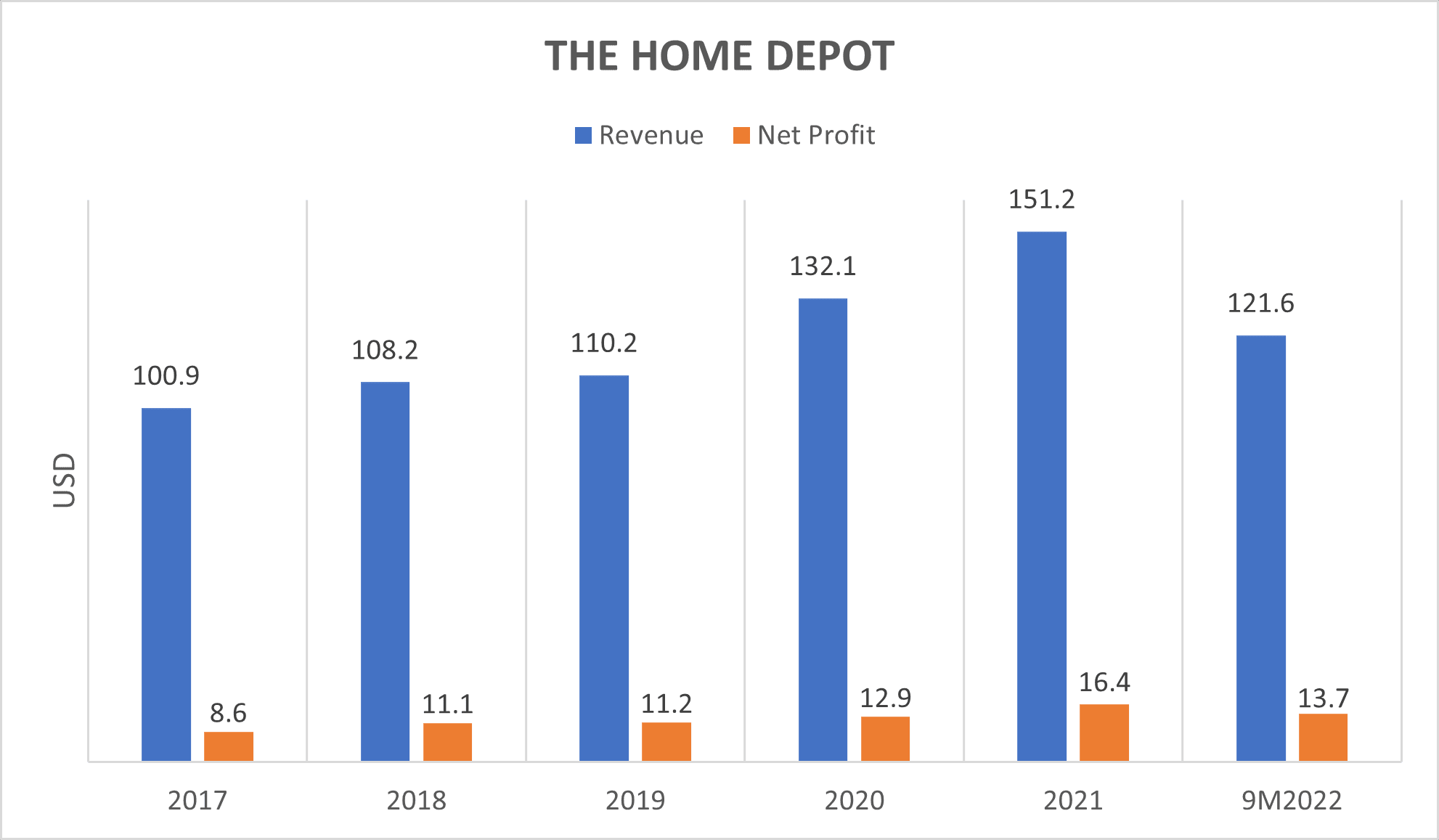The Evolution of a Home Improvement Giant: A Look at Home Depot’s Impact
Related Articles: The Evolution of a Home Improvement Giant: A Look at Home Depot’s Impact
Introduction
With enthusiasm, let’s navigate through the intriguing topic related to The Evolution of a Home Improvement Giant: A Look at Home Depot’s Impact. Let’s weave interesting information and offer fresh perspectives to the readers.
Table of Content
The Evolution of a Home Improvement Giant: A Look at Home Depot’s Impact

Home Depot, a name synonymous with home improvement and construction, has become an integral part of the American landscape. Its journey from a fledgling company in 1978 to a global retail behemoth is a testament to its adaptability, innovation, and customer-centric approach. This article delves into the evolution of Home Depot, highlighting its key milestones, strategic decisions, and the impact it has had on the home improvement industry.
Early Years: A Vision Takes Root
The concept of Home Depot was born from the vision of Bernie Marcus and Arthur Blank, two executives who were dissatisfied with the fragmented and impersonal experience of home improvement shopping at the time. Their goal was to create a one-stop shop for homeowners and contractors, offering a wide selection of products, expert advice, and competitive prices. In 1978, they opened the first Home Depot store in Atlanta, Georgia, setting the stage for a revolution in the home improvement industry.
Rapid Expansion and Market Dominance
Home Depot’s early success was fueled by its innovative business model. It offered a vast selection of products, a focus on customer service, and a commitment to low prices. This approach resonated with customers, leading to rapid expansion across the United States. By the early 1990s, Home Depot had become the largest home improvement retailer in the country, surpassing its main competitor, Lowe’s.
Strategic Acquisitions and Diversification
Home Depot’s growth was not solely driven by organic expansion. The company strategically acquired several smaller home improvement chains, expanding its reach and market share. Notably, the acquisition of Expo Design Center in 1999 allowed Home Depot to cater to a more design-conscious customer base, offering a wider range of high-end products and services.
Navigating Challenges and Adapting to Change
Home Depot’s dominance was not without its challenges. The dot-com bubble burst in the late 1990s, followed by the 2008 financial crisis, significantly impacting the home improvement industry. However, Home Depot weathered these storms by focusing on cost-cutting measures, streamlining its operations, and adapting to changing consumer preferences.
Embracing Technology and Digital Transformation
In recent years, Home Depot has embraced technology and digital transformation. It has invested heavily in its online platform, offering a seamless shopping experience for customers. The company has also implemented innovative technologies like augmented reality and virtual reality to enhance the in-store experience, allowing customers to visualize products in their homes before making a purchase.
Sustainability and Social Responsibility
Home Depot recognizes its responsibility to the environment and society. The company has implemented several initiatives to reduce its environmental footprint, including energy efficiency programs, waste reduction initiatives, and the use of sustainable materials. It also actively supports community programs, focusing on education, housing, and disaster relief.
Impact on the Home Improvement Industry
Home Depot’s impact on the home improvement industry has been profound. Its focus on customer service, competitive pricing, and a wide selection of products has set a new standard for the industry. It has also spurred innovation, forcing competitors to improve their offerings and adapt to changing consumer expectations.
Benefits for Customers
Home Depot offers numerous benefits to its customers, including:
- Wide Selection of Products: Home Depot offers a vast range of products for all home improvement needs, from basic tools and materials to high-end appliances and furniture.
- Competitive Pricing: Home Depot is known for its competitive pricing, making it an attractive option for budget-conscious customers.
- Expert Advice: Home Depot employs knowledgeable staff who can provide expert advice and guidance on a wide range of home improvement projects.
- Convenient Location: Home Depot has a vast network of stores across the United States, making it convenient for customers to find a location near them.
- Online Shopping: Home Depot’s online platform offers a convenient way for customers to shop from the comfort of their homes.
FAQs by Home Depot
Q: What are the hours of operation for Home Depot stores?
A: Store hours vary by location. To find the hours of operation for a specific store, please visit the Home Depot website or use the store locator tool.
Q: Does Home Depot offer delivery services?
A: Yes, Home Depot offers delivery services for many products. The availability of delivery services and delivery fees vary by product and location.
Q: Does Home Depot offer installation services?
A: Yes, Home Depot offers installation services for a wide range of products, including appliances, flooring, and countertops. The availability of installation services and installation fees vary by product and location.
Q: What is the Home Depot return policy?
A: Home Depot offers a generous return policy. Most products can be returned within 90 days of purchase with a receipt. Some restrictions may apply.
Q: How can I contact Home Depot customer service?
A: You can contact Home Depot customer service by phone, email, or chat. Contact information can be found on the Home Depot website.
Tips by Home Depot
Tip 1: Plan Your Project Carefully
Before starting any home improvement project, it’s essential to plan carefully. This includes determining your budget, researching materials and tools, and considering the scope of the project.
Tip 2: Seek Expert Advice
Don’t hesitate to seek expert advice from Home Depot’s knowledgeable staff. They can provide valuable guidance on product selection, project planning, and installation techniques.
Tip 3: Take Advantage of Sales and Promotions
Home Depot frequently offers sales and promotions on a wide range of products. Keep an eye out for these deals to save money on your home improvement projects.
Tip 4: Utilize Home Depot’s Online Resources
Home Depot’s website and mobile app offer a wealth of resources, including project guides, how-to videos, and product reviews. Utilize these resources to enhance your knowledge and planning process.
Tip 5: Consider Sustainability
When making purchasing decisions, consider the environmental impact of your choices. Home Depot offers a wide selection of sustainable products and materials, allowing you to reduce your carbon footprint.
Conclusion
Home Depot’s journey from a small startup to a global retail giant is a testament to its adaptability, innovation, and customer-centric approach. The company’s commitment to offering a wide selection of products, competitive pricing, and expert advice has made it a trusted partner for homeowners and contractors alike. As the home improvement industry continues to evolve, Home Depot remains at the forefront, embracing technology and digital transformation while upholding its core values of customer service and sustainability. Its impact on the industry is undeniable, and its influence on the lives of millions of customers who have relied on its products and services for their home improvement needs is immeasurable.




.png)



Closure
Thus, we hope this article has provided valuable insights into The Evolution of a Home Improvement Giant: A Look at Home Depot’s Impact. We thank you for taking the time to read this article. See you in our next article!